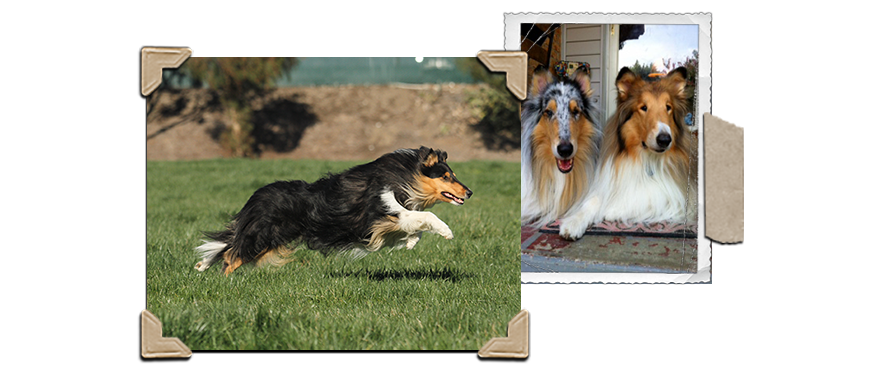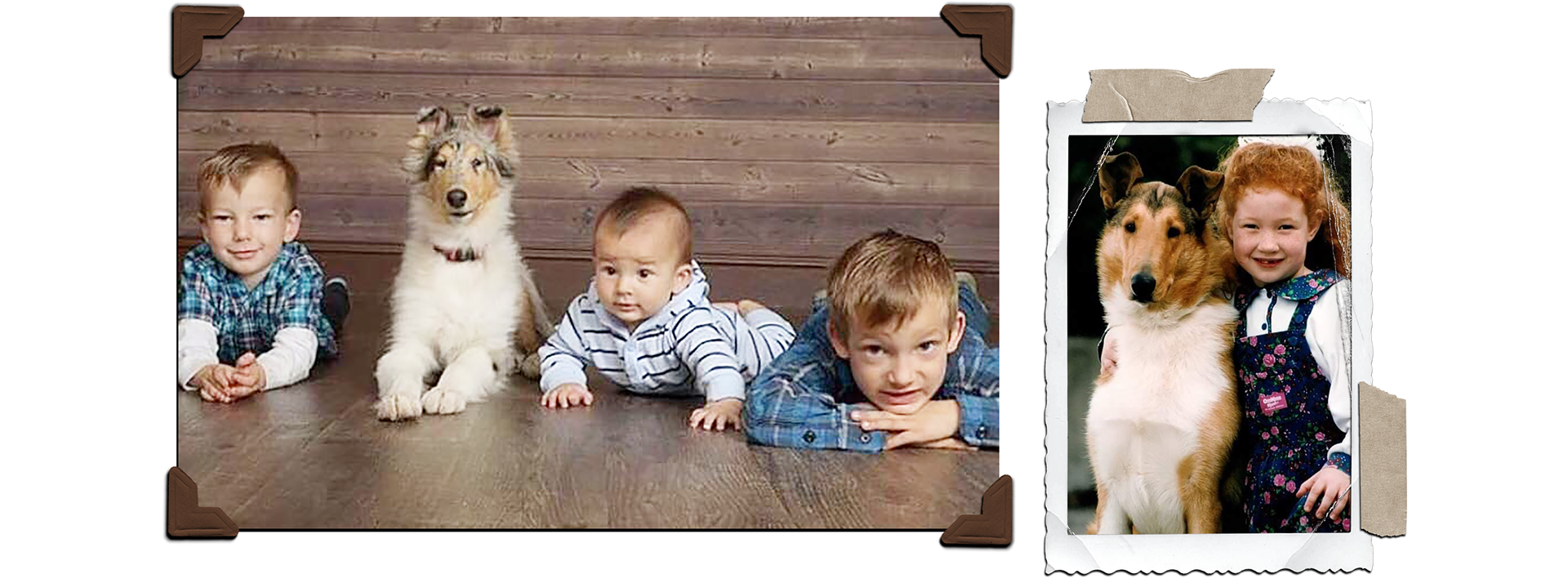Chapter 5 - Collie Health
General health
The Collie is over all a healthy, sturdy breed with a life expectancy average of 12 years. Hip and elbow dysplasia, heart problems, and epilepsy which are common in many large breeds, are not common problems to Collies, although they do occasionally occur. Cancers do not occur in Collies at a rate that is different from any other dog. Collies and other white-footed herding breeds are sensitive to certain drugs, among which Ivermectin is, the active ingredient found in some heartworm preventatives and also the over-the-counter human drug, Imodium. For more information about drug sensitivity in Collies, visit the website of Washington State University’s College of Veterinary Medicine. This will link you to information on testing your dog for drug sensitivity and will help you keep up with current health research.

Recent strides in the field of canine health have been of great benefit to all dogs and the families who love them. Veterinary research, coupled with the dedication of breeders, has had a very positive impact on the Collie. Over all general health of the breed has consistently improved over the past 50 years due to the diligence of the Collie Club of America and the group’s strong dedication to Collie health. In 1986, the Collie Health Foundation, Incorporated, was organized “To foster and promote the public's knowledge and appreciation of dogs in general and Collies in particular.” Over the years, the Foundation has awarded many grants supporting exploration into health issues that affect the Collie. It also contributes to the AKC’s Canine Health Foundation to the benefit all dogs. Through its generous grants, the Foundation has helped support and promote research that has helped further understanding of diseases, defects, injuries and other ailments that afflict dogs in general and collies in particular. The organization provides to not only its members, but also the general public, educational materials about the proper care, treatment, breeding, health, development and training of Collies. Information about Collie health is easily found on this organization’s website, www.colliehealth.org.

Eyes
When purchasing a Collie or puppy, prospective owners need to be aware of two specific eye conditions that might affect their Collie---Collie Eye Anomaly, CEA, and Progressive Retinal Atrophy, PRA.
Collie Eye Anomaly, CEA, occurs in varying degrees of the condition from mild to severe. In brief, mild CEA involves the pigment in the Choroidal area of the eye and does not affect vision, nor does it worsen as the dog ages. While CEA is not visible, it should be checked by a registered canine ophthalmologist. The Collie Club of America’s Code of Ethics requires its members to have eye checks performed prior to puppies going to their new homes. Each dog examined has a certificate from the ophthalmologist that describes the Collie’s individual’s vision.
Progressive Retinal Atrophy, PRA, is a rare condition causing the dog to become blind. While test breeding has practically eliminated PRA from the gene pool, there is a new genetic test which easily identifies dogs as clear, carrier or affected. Responsible breeders now have a tool to eradicate this disease from their Collies. It is another reason why it is important to connect with Collie Club of America members who have signed Code of Ethics.
Should you have questions about your puppy’s eye evaluation, contact the canine ophthalmologist who performed your puppy’s eye check. They will have a copy of that report and will give you accurate information. Do not rely on your veterinarian to explain the problem; while well intentioned, they do not have the specialized training to give you the accurate facts. More than once, puppy buyers have been needlessly alarmed by a well-intentioned yet non-eye certified vet. Think about it. If you need glasses, would you go to your general practitioner or an ophthalmologist?

Skin
Some Collies, like all dogs, may experience skin sensitivities. Diligence on the part of breeders, advances in the formulation of premium dog foods, and the treatment of parasites, have made many skin problems a thing of the past and greatly reduced others to the point of rarity. Good nutrition followed by proper grooming will help keep your dog’s skin and coat in optimal condition. Quality foods naturally preserved will work to keep your Collie fit from the inside out; while consistent grooming which includes an occasional bath will keep its coat and skin in prime condition. A word of caution, dog shampoo is specially formulated to a dog’s PH which tends to be alkaline. Human shampoo is acidic to complement our PH. Using a human shampoo often invites skin issues.

Allergies In Humans
Since substances such as pollens and molds can stick to a dog and be transmitted to any person who touches it, there really is no such thing as a completely hypoallergenic dog. Serious allergy in a family member, therefore, requires physician management before any animal is introduced into the household. Enzymes found primarily in saliva and also in dander trigger animal allergies. The most important factor in determining the allergenic nature of a breed is the fit of the lips followed by the type of coat. Because the Collie has tight-fitting lips and a double coat, which holds the dander next to the skin, the breed is only moderately allergenic. Family traffic management, including restriction of the dog from parts of the house such as bedrooms, coupled with bathing and grooming protocols done outside the house, minimize the impact of allergens on the family.